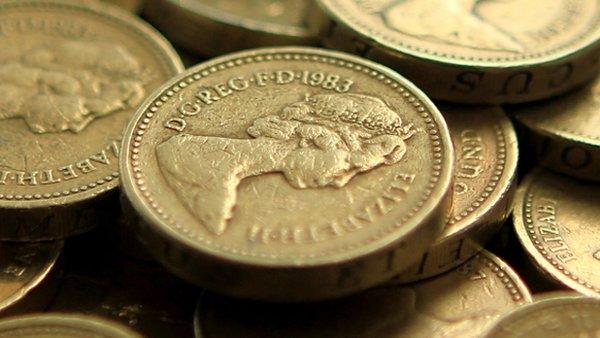Scottish referendum poses Welsh questions
- Published
BBC Wales' political editor Nick Servini joined the crowds at Saturday's Six Nations match between Scotland and Wales
It is exactly six months to go before the Scottish independence referendum, but it is more than just an anniversary because there is now a significant ratcheting up of the campaign.
I have been to Edinburgh and Glasgow getting the latest from the two camps: Yes Scotland and Better Together.
Yes Scotland has just begun its biggest investment yet on newspaper advertising and billboards.
The chief executive Blair Jenkins told me there are two striking elements to the campaign so far.
"One is the duration. Even by the standards of an American presidential campaign this is a long campaign," he said.
"By the time we get to September most of us would have been doing this for two years and three months.
"The other thing of course is the historic significance of it.
"People have a much stronger sense now that this is not the kind of thing that comes along very often, probably only once in a lifetime."
Media support
Yes Scotland claims to have the edge with their grassroots campaign.
Better Together, which supports the union. claims to be grassroots-driven as well but the general perception is that the Yes camp has more successful in organising events like public meetings while Better Together enjoys more support from large media organisations.
Jackie Baillie, a Labour MSP and a director of the Better Together campaign, says there will be a big moment for the Labour Party in Scotland later in the month when it sets out what powers it will offer the people of Scotland in the event of a "no" vote.
She said: "It's a big moment for all of us. You don't throw away 300-plus years of history as a United Kingdom without thinking very seriously about the consequences.
"But I'm clear there are a lot of Labour voters who are undecided - we need to lead them in this campaign to preserve not just the United Kingdom but actually to get the best of both worlds so that we have a stronger Scottish Parliament.
"I think that is what will work in the end so Labour needs to speak to its supporters very clearly about this."
The polls have been edging closer but overall there is still a lead for the No camp.
It is not difficult to get to the bottom of the main arguments for and against independence but it is far more difficult to try to establish what it could all mean for Wales.
I caught up with former First Minister Rhodri Morgan before the Wales v Scotland rugby match to get his opinion.
Fears yes vote
He fears a yes vote because he claims it will lead to a weakening of the Celtic voice at Westminster.
Mr Morgan said: "An English backlash - that is the main danger because you could say Wales will be rewarded for not causing this instability in the British constitutional settlement but the alternative view to that is it'll be a curse on all you Celts."
There are a number of scenarios which could be significant to Wales in the event of a "yes" or a "no" but no consensus has built up because there are so many variables. Questions such as whether the allocation of funding to Wales from Westminster would increase are impossible to answer.
Different constitutional experts have varying opinions.
Prof Laura McAllister, of the University of Liverpool, said: "I can't see any way that it won't mean greater powers for Wales.
"And if it doesn't then it's a scandal.
"Scotland without a shadow of a doubt will have more powers even if it votes no.
"More powers over its fiscal autonomy and over its policy responsibilities.
"It would be completely wrong if the first minister was not actively campaigning for a better settlement for Wales post-Scottish referendum."
And here's another view from Prof James Mitchell at the University of Edinburgh: "It is quite conceivable that Scotland could gain more powers if it votes no but it could also mean it has no impact on Wales whatsoever, or it might.
"Sitting back and assuming that the UK government will also look at Wales and want to give something to Wales would be a great mistake.
"The focus of attention after the referendum will be sorting out Scotland and thinking about the EU. Wales could find itself yet again marginalised and forgotten."
- Published18 March 2014
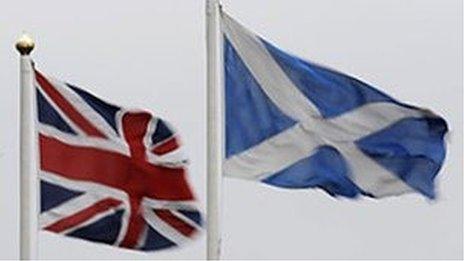
- Published9 September 2014
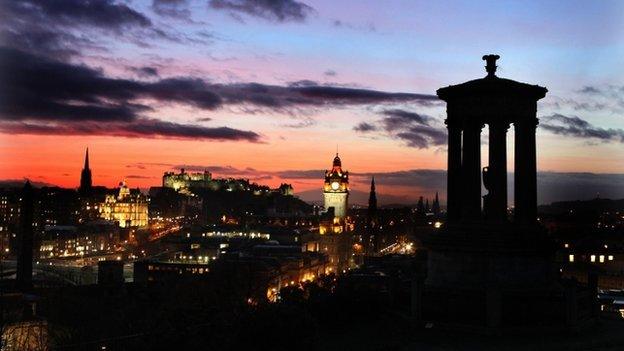
- Published28 February 2014
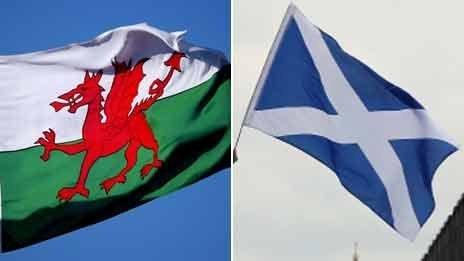
- Published16 March 2014
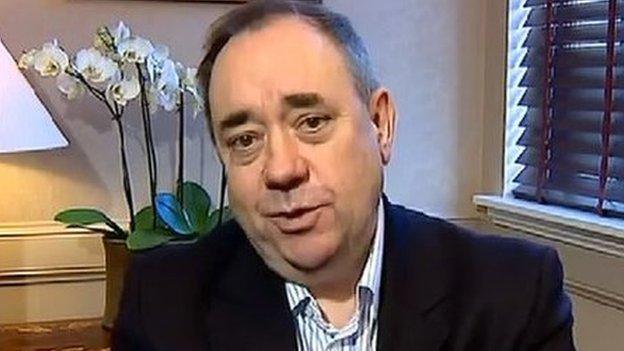
- Published17 March 2014
- Published7 March 2014
